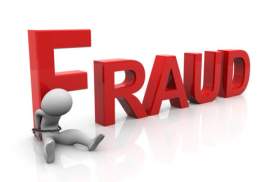
What are Punitive Damages?

Popular In Malpractice
Malpractice Attorney Contributory Negligence Malpractice Law Overview Statute Of Limitations Standard Of Care Medical Malpractice Defense Good Samaritan Acts Fraudulent Concealment Of Evidence Punitive Damages Proving Negligence Medical Malpractice Overview Express Implied Contracts From A Physician
What are Punitive Damages
Unlike economic or non-economic damages awarded by a judge or jury in a civil tort trial, punitive damages have little to do with the actual harm suffered by the plaintiff in the actual injury. Punitive damages, on the other hand, are awarded strictly as a form of punishment against the tortfeasor. Punitive damages are most often awarded in situations where the defendant's actions are so reckless and without regard for society at large that the award of damages, in excess of those found to be suffered directly by the plaintiff, are deemed necessary to punish the tortfeasor and curb the likelihood of those actions being repeated. Often when awarding punitive damages the awards will not be granted directly to the plaintiff but will require the defendant to pay a certain amount of money into a charity or fund to aid members of society who have been injured by actions that are seemed to be similar to those that the defendant has been found liable of.
When are Punitive Damages Available?
Punitive damages are usually available in tort cases where the defendant's actions rise above mere negligence. Punitive damages are found, most famously, in tort cases against corporations for their reckless disregard for human safety in the maintenance of their facilities or by purposefully sending defective and dangerous products into the marketplace.
Where punitive damages are available in most tort situations they are not commonly available in contract disputes. The idea behind litigation in a contract is that the parties should be put into the positions that would best suit the idea of "fair dealing." The idea of a punishment is not something that equates well with contract law. There are exceptions to the rule, such as when a party to the contract acts in bad faith.
What are the Limits of Punitive Damages?
There is no actual dollar amount that a judge or jury is limited when awarding punitive damages. However, due to judges and juries awarding, what the Supreme Court noted as, excessive punitive damages the Supreme Court has made a number of decisions limiting the amount that can be awarded. In one situation the Court has noted that a 4:1 ratio between punitive and compensatory damages is acceptable whereas they held in another case that a ratio of 10:1 is excessively high and would be unconstitutional under the due process clause of the 5th and 14th amendments. The rationale being that a punitive damages award of that ratio would constitute a criminal punishment without due process of law.
The Controversy Over Punitive Damages
The controversy over punitive damages extends from the excessive nature of the award. Juries have often been found to, not only sympathize with a seriously injured plaintiff, but also show disdain and contempt for reckless and callous defendant's, especially those that take the form of corporations. In that sense it is not a surprise that many juries tend to award punitive damages far in excess of that which would be deemed reasonable. Many consider the practice of awarding punitive damages a form of criminal punishment and, in fact, punitive damages are considered "quasi –criminal." "Tort reform" legislation seeks to curb the practice, or at least, scale back the awards that juries are entitled to hand out.



















